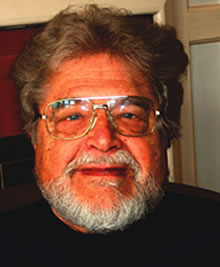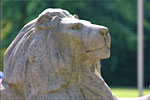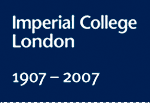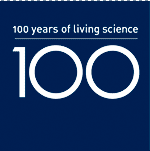Professor Felix Weinberg
Emeritus Professor of Combustion Physics, Felix Weinberg, started work in Imperial in 1951, and often refers to the College as: "The centre of the known universe in terms of research".

Professor Weinberg arrived in the UK after spending several of his teenage years in Auschwitz, a concentration camp in Poland, during the Second World War. He explained: "During my time in the camp, I lost the majority of my family. I was of the only age you could really survive in the camps, as I was old enough to work. I eventually arrived in Britain to be reunited with my father, in a stripped out Lancaster bomber on VJ Day. I hadn't had any schooling since I was 12, couldn't speak English and had effectively forgotten how to write. Normally school children don't want to learn, but I was desperately keen to make up for lost years. I don't advocate sending children to concentration camps now for motivation, but maybe a lumberjack camp?"
Taking inspiration from his industrial chemist father, Professor Weinberg completed an external general science degree at London University and fell in love with physics. He explained: "My father wanted me to take chemistry as this was his love, but you need a memory that I seem to have lost during the war. With physics you could advance by understanding and this inspired me to go on to a second degree in the subject. I arrived at Imperial to complete my PhD on the structure of flames, and was employed as a research assistant in 1951."
Professor Weinberg has now been in continuous employment by Imperial for the last 56 years and describes it as: "A wonderful place and quite simply the hub of my universe ever since."
When recalling his first day, he said: "I was told to register at the Science Museum Library by crossing the lawn and descending through a manhole into the central heating pipe system. And I did, but realised that I must have taken the wrong turn as I ended up crawling on all fours! The estate looked very different than it does today too, there had been much bomb damage during the war."
Throughout his time here, Professor Weinberg has taken various sabbaticals and visiting professorships, but has always returned. He said: "Imperial always called me back. Usually through the dedication of the many PhD students I have had the privilege of teaching over the years. Communication has certainly improved too, I used to receive telegrams from them telling me that my latest suggestion did not work, now it's just an email!"
Professor Weinberg, who was elected FRS in 1983, has written, co-written and edited several books during his time here, written over 220 papers and seen half a dozen heads of department in chemical engineering. The current head, Professor Stephen Richardson, was an undergraduate who used to attend his lectures. Professor Weinberg said: "He must have forgiven me as he is yet to throw me out!"
When asked what it is that has kept him here all these years, Professor Weinberg said: "I've spent 80 per cent of my life doing this, when I'm not here I work from home. Having spent this much time doing research, it's hard to find anything of comparable interest. I don't think people like me can ever really stop."
© 2007 Imperial College London

Science and technology have the power to transform the world. Today’s complex challenges demand new approaches, fresh thinking and scientific innovation. Donate now to support research and education at Imperial.
Where your support can make a differenceGive now

Imperial’s Centenary Year is the perfect time to look back on your time at Imperial College London and share your memories with the College community of staff, students and alumni.
View memories

